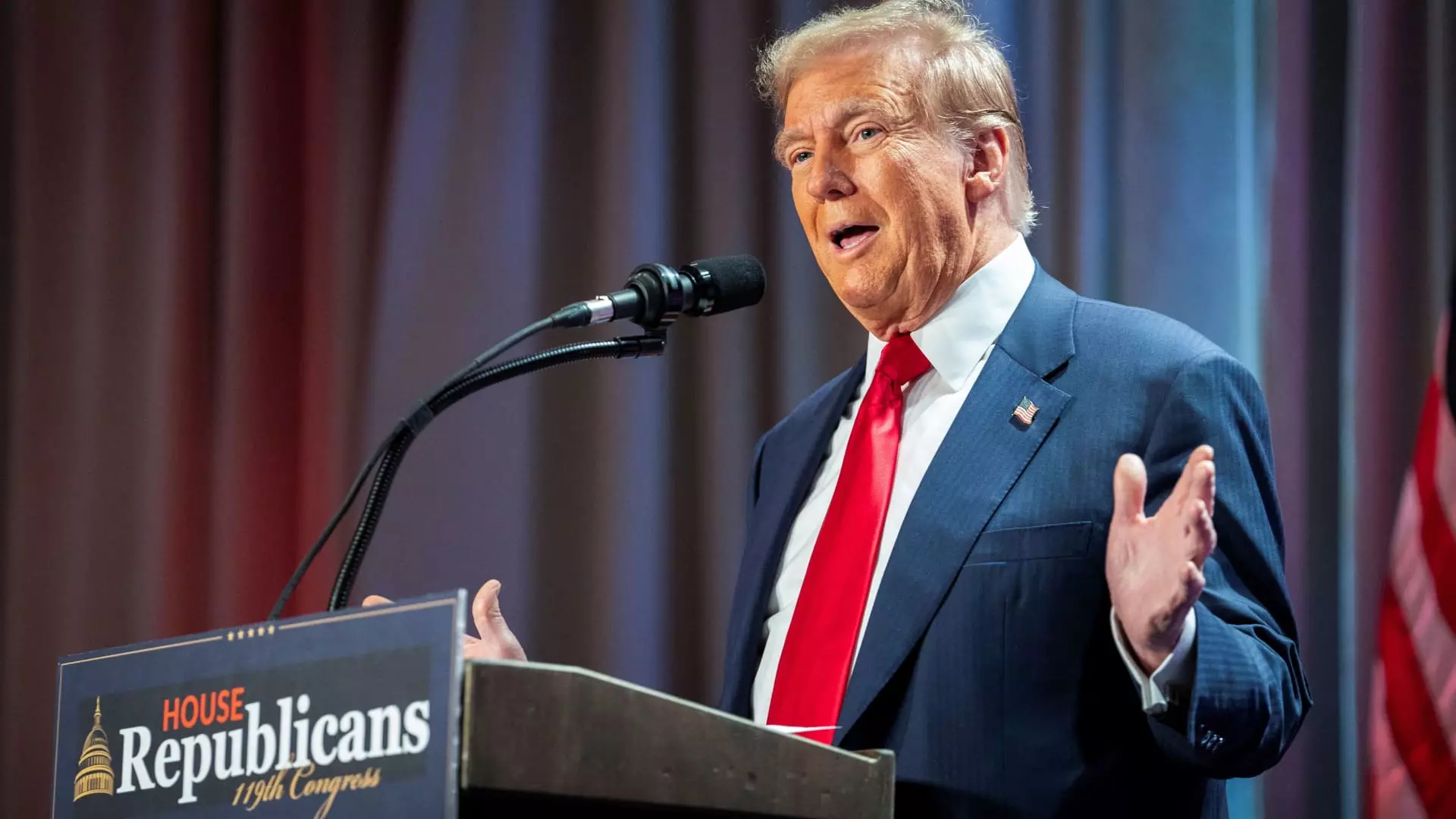The announcement of Chris Wright as the nominee for the Department of Energy by President-elect Donald Trump signals a decisive pivot toward fossil fuel advocacy in U.S. energy policy. Wright, a prominent figure in the oil and gas sector as the founder and CEO of Liberty Energy, embodies an industry-friendly approach that sharply contrasts with the green energy initiatives favored by many in the current administration. His track record in the oilfield services industry and his unyielding defense of fossil fuels position him as a significant player in shaping the country’s energy future, especially under an administration that appears indifferent to the pressing needs for environmental regulations.
Wright’s appointment raises important questions about the direction energy policy will take. With an administration intent on maximizing domestic oil and gas production, there is the potential for a notable shift in the United States’ engagement with climate change, which has been a focal point for global cooperation over recent years. Trump’s administration is poised to prioritize traditional energy sources over the growing demand for clean energy technologies, raising concerns among environmentalists and advocates for renewable energy alternatives.
Wright’s personal views and public statements provide insight into his ideological alignment with Trump’s agenda. He is notably skeptical of climate change narratives and has criticized climate activists as alarmist, even equating Democratic policies aimed at combating global warming with Soviet-style communism. Such rhetoric showcases a dismissive approach toward scientific consensus and environmental urgency. In a video posted on LinkedIn, Wright boldly claimed, “There is no climate crisis, and we’re not in the midst of an energy transition, either,” reflecting a rejection of mainstream climatological studies.
His opinion reveals an adversarial stance toward the broader societal shift toward climate accountability, potentially hampering the integration of sustainable practices in favor of a more aggressive fossil fuel exploitation strategy. For Wright, the focus appears to be on leveraging fossil fuels as a means to alleviate poverty, a thematic narrative he has repeatedly espoused in his writings. However, this perspective raises significant concerns about the balance between economic growth and environmental sustainability.
The Department of Energy (DOE) is a pivotal agency that influences various aspects of energy policy, including national energy security, nuclear energy management, and the promotion of innovative energy technologies. If confirmed, Wright will take over from Jennifer Granholm, who championed electric vehicles and renewable energy sources, highlighting a stark ideological contrast.
One of the essential functions of the DOE is overseeing the Strategic Petroleum Reserve—a national asset that provides a buffer against supply disruption. Replenishing this reserve under Wright’s leadership may signal a reinforcement of fossil fuel reliance at a time when alternative energy sources are becoming increasingly viable. Additionally, Wright’s potential oversight of permitting related to nuclear energy expansion complicates an already intricate regulatory landscape, posing challenges that could stymie the growth of low-emission energy technologies.
As the U.S. approaches a period of surging power demand—driven by technological advancements in artificial intelligence, electric vehicles, and burgeoning sectors such as cryptocurrencies—how Wright navigates the intricate relationship between traditional fossil fuels and emerging energy demands will be crucial.
The U.S. has seen record oil production levels, a metric that Wright will undoubtedly aim to enhance further. However, many drilling decisions reside with private companies operating on non-federal land, which limits the direct influence of the DOE on production rates. Thus, while Wright’s leadership may cater to traditional energy markets, the implications for renewable sources and long-term sustainability remain a contentious issue.
Chris Wright’s nomination represents a defining moment in U.S. energy policy that prioritizes fossil fuels over renewable sources at a time when the global focus on climate change continues to intensify. As he faces confirmation and ultimately assumes leadership within the DOE, the ramifications of his tenure will extend far beyond domestic oil and gas production; they will shape America’s role in the global energy landscape and its approach to climate resilience.
The path forward may lead to heightened tensions between fossil fuel proponents and advocates for a sustainable future, emphasizing the urgent necessity for dialogue and innovative solutions to energy production that prioritize both economic growth and environmental responsibility. How Wright chooses to balance these competing interests will determine not only his legacy but also the broader trajectory of energy policy in the coming years.

Leave a Reply